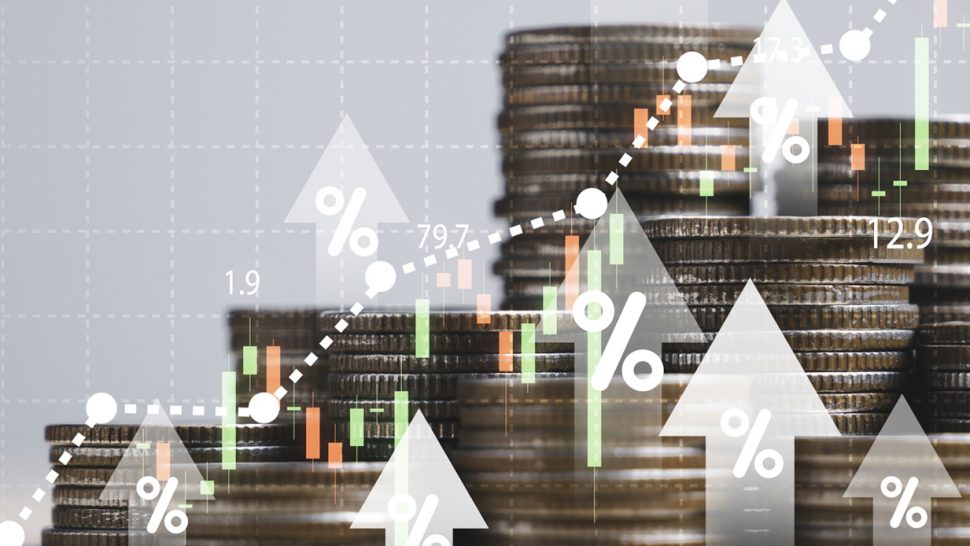Ocean Equity Monthly Manager Commentary – November 2024

Manager view
November was a busy month, with Donald Trump elected as the 47th President of the US. The Republicans won all seven of the major swing states and the biggest share of the popular vote since 1996. The market rallied on this news before settling back into the current up trend for the year.
There has since been a lot of noise around potential trade tariffs and immigration. Meanwhile, on the positive side, there is the prospect of increased fiscal spending, tax cuts and deregulation. We think the narrative around higher tariffs will not be as bad as the market believes, with Trump using the threat as a bargaining tool.
Elsewhere, a deal between Israel and Hezbollah provided encouragement and will hopefully lead to a resolution between Israel and Hamas. The US and the UK finally granted Ukraine permission to launch their weapons into Russian territory to disrupt Russia’s long-distance bombing capability and supply-chain infrastructure. As we move into 2025, we are hopeful of geopolitical resolutions for both these conflicts.
On the economic front, the Federal Reserve reduced interest rates by 25bps, as expected, and said it would continue with cuts. It emphasised a data-led approach to future rate decisions, with a focus on inflation and the jobs market. The Bank of England (BoE) also reduced rates by 25bps, to 4.75%, in line with market expectations. Governor Andrew Bailey said rates are likely to “continue to fall gradually from here” but cautioned that they would not be cut “too quickly or by too much”. Investors expect rates to be held at December’s BoE meeting but anticipate a series of cuts in 2025 as the bank moves away from its restrictive monetary policy stance in response to a more stable inflationary outlook.
Trade tariffs and potential US policy shifts are likely to impact a broad range of industries, predominantly in cross-border trade in physical goods, with the domestic agenda of the incoming US administration affecting the wider US economy, especially supply and demand. While all is rhetoric at this stage, whatever happens will add further complexity to an environment of inflation, technological change and geopolitical conflict. It is important that we remain alert to changing facts and situations as they emerge. However, we would note that our portfolio of high-quality businesses has the resources and capability to respond to evolving economic and geopolitical events, as demonstrated over the past few years.
Discrete performance
| 2023 | 2022 | 2021 | 2020 | 2019 | |
| Fund | 8.67% | -22.63% | 27.74% | -2.40% | 24.04% |
| IA Sector | 7.38% | -9.06% | 17.25% | -6.01% | 22.24% |
| Rank in Sector | 79/231 | 202/228 | 9/222 | 53/217 | 80/209 |
| Quartile | 2 | 4 | 1 | 1 | 2 |
Total return, bid to bid, tax UK net, sterling terms. Source: Waystone Fund Services UK Limited/Financial Express Analytics. Past performance is not a reliable indicator of future results. The value of your investment and the income derived from it can go down as well as up, and you may not get back the money you invested.
Company news
Halma
Halma issued record interim results at the revenue and profit level. We are encouraged by management’s relentless execution and delivery in terms of financial results and the significant opportunity set the group faces over the medium term. The company’s end markets of safety, environment/analysis and healthcare are benefiting from structural drivers such as increasing urbanisation, safety requirements such as gas and water leak detection and an ageing population. Revenue was up 13%, to over £1bn, and profit up 17%, to over £200m, while EPS was +16%. The dividend grew by 7% – the 35th consecutive year in which it has grown by 5% or more.
We continue to believe Halma is well positioned via its sustainable, compounding growth model, driven by a combination of organic growth and bolt-on M&A. The strategy when acquiring businesses is that the company expands the existing product offering and/or geographic exposure while typically having a margin profile above the group average. Halma executed four transactions for circa £84m during the period, and its low debt levels mean it has plenty of firepower for further transactions as it continues to build scale in its end markets. Management has spoken of a pipeline of 600/700 companies. It has an excellent track record of not overpaying while retaining management to drive rapid and seamless integration.
Halma’s exceptional record means a fairly full price of circa 27x earnings, but this falls to 24x in FY26. The FY24 FCF yield is 4%, while price to sales is 3.7x. The shares have risen circa 20% year to date, and management continues to emphasise its intention to double the size of the business every five to seven years.
Diploma
Diploma issued full-year results, with revenue up 14% – split between 6% from organic growth and 8% from M&A. Profit was up 20%, EPS was up 15%, and the dividend grew by 5%. Much like Halma, Diploma has a decentralised business model, allowing operating companies autonomy while delivering support from head office. In addition, its end markets are substantial and fragmented, giving the business growth optionality – provided it prices sensibly and remains laser-focused on the entire customer proposition.
On the M&A front, Diploma invested £293m in seven acquisitions and divested of three non-core businesses for £45m. Management said the recent purchase of Peerless, a US supplier of fasteners to aircraft manufacturing assembly lines, is performing ahead of expectations. The M&A hopper has 3,000 opportunities, with 50 identified as near-term. Diploma is well positioned to keep growing, boosted by the non-discretionary, mission-critical nature of its products. The group margin was 20.9%, and management forecast this to reach at least 21% for FY25.
We have held Diploma in the fund since launch. We believe the business, having now entered the FTSE 100, has ample opportunity to grow and become substantially more valuable over the medium term. Why do we think this? The total addressable market for the company’s products is significant and substantially higher than current annual revenue of circa £1.3bn – but it must be at the right margin. In addition, many of the end markets Diploma sells into – such as renewable energy, data centres, aerospace and industrial automation – are forecast to grow strongly between now and 2030. The shares have performed well and are up circa 25% year to date.
Michael Foster – Lead Portfolio Manager Ocean Equity
November 2024
………………………
The Ocean Equity Fund does not have an objective linked to the oceans or marine bio-diversity but the Fund Manager may choose to invest in companies that derive their revenue from shipping and energy transition sectors.
AUTHORISED AND REGULATED BY THE FINANCIAL CONDUCT AUTHORITY | MEMBER OF THE LONDON STOCK EXCHANGE
| NOT FOR DISTRIBUTION IN THE U.S.A.
This factsheet has been issued by Fiske plc on the basis of publicly available information, internally developed data and other sources believed to be reliable and accurate. No representations or warranty, expressed or implied, is made nor responsibility of any kind is accepted by Fiske plc, its directors or employees either as to the accuracy or completeness of any information stated in this factsheet. Any opinions expressed (including estimates and forecasts) may be subject to change without notice. This document is not intended as an offer to buy or sell the fund nor as a personal recommendation. Fiske plc, or any of its connected or affiliated companies or their employees, may have a position or holding or other material interest in the fund concerned or in a related investment, or may have provided within the previous twelve months, significant advice or investment services in relation to the investment concerned or a related investment.
Investors must be aware of the risks associated with investment in this fund. Full details of the Ocean Equity Fund, including risk warnings, are published in the Prospectus and Key Investor Information document. The fund may not be suitable for all investors and if you are in any doubt whether the fund is suitable for you advice should be sought from a suitably qualified professional advisor. The value of the fund and the income derived from it can go down as well as up. Investors may not get back their initial investment. Past performance is not necessarily a guide to future performance. Estimates of future performance are based on assumptions that may not be realised. Securities denominated in foreign currencies may see their value fall as a result of exchange rate movements. Any comments contained in this factsheet are intended only for the use of the individual or entity to which it is addressed and may contain information which is confidential and may also be legally privileged.
If you have received this document in error, please telephone the Compliance Department on 44 (0)20-7448-4700.
Fiske plc FCA Register No: 124279





